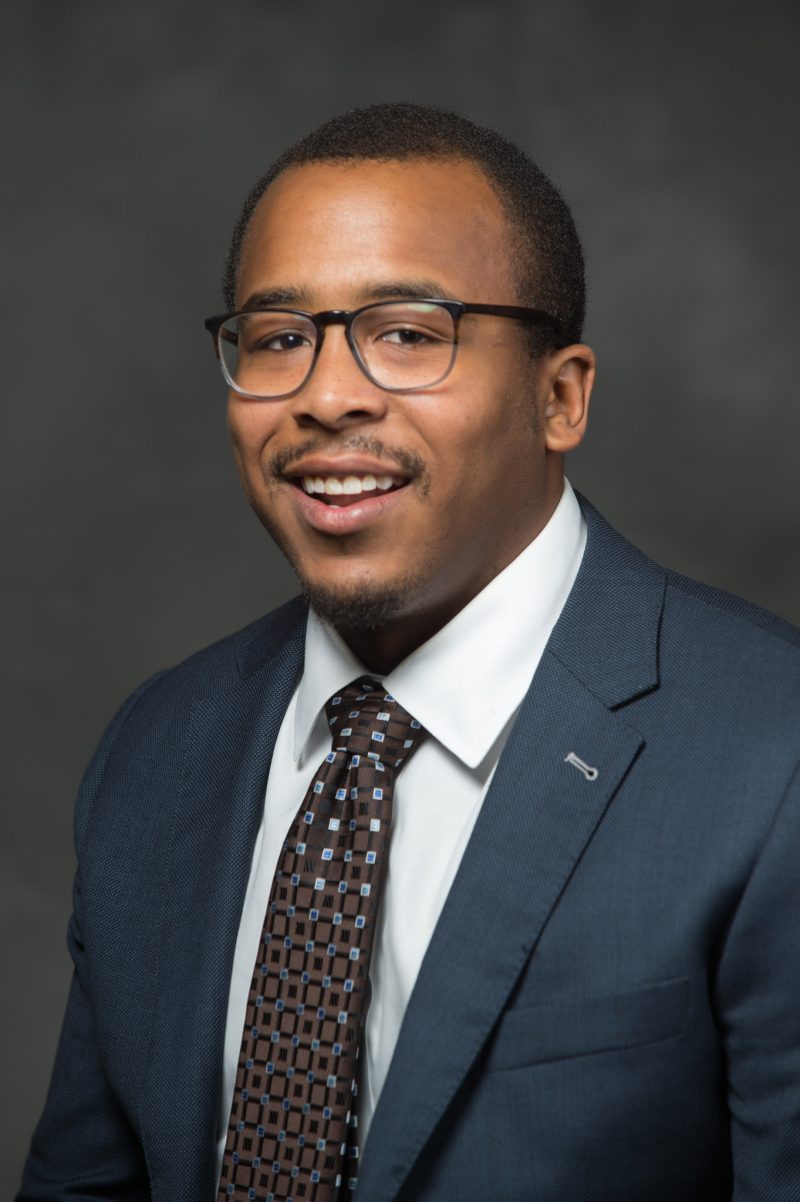
Cedric White’20 (PHARM.D.) is the recipient of the 2018 Dr. Karl A. Nieforth Pharmacy Student Research Award. His research centers on the most effective ways to present the risks and benefits of different chemotherapy medications to cancer patients who may lack the ability to understand treatment choices, especially when they are presented in a numerical format.
In an eight week period during this summer, White will prepare study materials, recruit and enroll patients for the study, and analyze data. He will work closely with Lisa Holle and Rachel Eyler, both Assistant Clinical Professors of Pharmacy Practice, during the course of his research.
Holle explains that within current trends in medicine, including in her specialty area of oncology, patients are increasingly given the opportunity to make decisions relating to their own medical care. Often, choices involve understanding numerical concepts, such as the probability that although one drug may cause more side effects than another, it may yield better outcomes.
A patient’s comprehension of numbers, and how they work, can make a significant difference in their treatment choices. However, as with verbal comprehension, the understanding of numbers varies from person to person. This number fluency is called numeracy and while it has been studied in the behavioral sciences, evaluating its impact on how patients process information in healthcare settings is relatively new.
Enter White. The purpose of his research is to examine the most effective ways to present the risks and benefits of different chemotherapy medications in various formats. In turn, this will not only increase patient health literacy, it will help enhance the patient-pharmacist relationship in a team approach to healthcare.
White’s material will include graphic representations of concepts such as probability and percentages. However, rather than relying on discrete elements commonly found on bar graphs, charts, or with individual icons, he will integrate the use of ‘spinners’ – a visual presentation where data is offered in a continuous format.
While a fairly new way to present statistical data to a lay audience, spinners show promise in clarifying sometimes difficult to comprehend concepts to people with low to moderate numeracy.
In 2013, White earned his BS in biochemistry and sociology from Bowdoin College in Brunswick, Maine. He subsequently worked at the Dana-Farber Cancer Institute as a clinical research coordinator for the Adult Leukemia Group. He received his B.S. in Pharmacy Studies on Sunday.

He says, “I managed cooperative group clinical trials as well as some industry-sponsored trials. It was this experience that confirmed my desire to attend pharmacy school.”
A native of Randolph, Mass., he has close ties to home, especially with his twin brother who also attended Bowdoin and where both played football. Once he decided to pursue a Pharm. D., UConn became White’s first choice for pharmacy school due to its fine reputation and its proximity to his family.
Coming from a small liberal arts college in Maine, with an undergraduate population of about 1800, White admits that UConn’s student population – and the distance of student parking from his classrooms – was initially a bit of a shock. However, he quickly became accustomed to the close-knit atmosphere at the School of Pharmacy and has become active in various activities including the School’s Diversity and Professionalism Committees.
He is also a member of the Student College of Clinical Pharmacy, a student chapter of the American College of Clinical Pharmacy (ACCP). This is how he first met Holle, when she spoke to the organization about the work of oncology pharmacists at UConn Health.
He was especially intrigued by her work evaluating the impact of oncology pharmacy practice services on patient care. Realizing that their interests meshed, he contacted her about doing an independent study project. That, in turn, led to his application for the Nieforth Fellowship.
For her part, Holle says she impressed with White’s inquisitive nature and his self-motivation. “He is easy to work with because he understands the nature of research. He takes constructive criticism well and isn’t shy about proposing new approaches. I think he has a chance to make a real difference in the communication process between medical staff and patients. The Nieforth grant will help him reach that goal.”
The Karl A. Nieforth Pharmacy Research Award is named after former Dean of the School of Pharmacy, Karl A. Nieforth. It is offered to PharmD students based on their project’s significance to the pharmacy field, the scope of their work, and how the research fits into their plans for their future in the field of pharmacy.



